|
Martin Heidegger is undoubtedly one of the most creative and influential philosophers of the 20th century. Virtually all areas of philosophy, along with many other disciplines as well, have had to tackle in one form or another the questions he poses, and the insights he provides. His work grasped the zeitgeist of the 1930s and 40s for most of continental philosophy. It is a tour de force Marxist philosophers must face head on. Simply calling it ‘bourgeois,’ ‘Nazi’, or the expression of the middle-class state of being in post WW1 Germany is not enough. While it is important to situate Heidegger in his proper historical and class context, and while it is essential to show the Nazism and antisemitism he was undoubtedly committed to for a significant period of his life, this is insufficient to defeat the thought of this giant. Other leftist scholars have already made tremendous inroads in this area. Since at least the publication of Heidegger’s Black Notebooks, but especially now with the publication of Richard Wolin’s recent text, Heidegger in Ruins, the intimate connection between Heidegger and Nazism is indisputable – even though many, including those working within his Gesamtausgabe (collected works), have tried to paper over it. Certainly, to borrow an expression Domenico Losurdo uses to describe Nietzsche scholarship, there has pervaded a “hermeneutic of innocence” in Heideggerian scholarship which tries to divorce his work from the essentially political context that embeds it. Its political horizon, its class basis, its connection with Nazism, these are all things any Marxist discussion on Heidegger should include. But we must ask, is this enough to ‘defeat’ Heidegger? If he was simply a ‘Nazi,’ why hasn’t he, like Emmanual Faye suggests, been taken off philosophy shelves and put next to Goebbels?[1] Why have so many leftist scholars in the Global South and East, thinkers aware of Heidegger’s Nazism, turned in various parts of their work to Heidegger for insights? Unlike the tradition of Western Marxism, where the eclecticism is intimately connected to a politics that throws on the support of imperialism a radical veneer, a lot of these scholars are fervent critics of U.S. imperialism and have stood for decades on the side of socialist construction. Why does, for instance, the late Bolivian Marxist, Juan Jose Bautista Segales, find that he can incorporate insights from Heidegger’s critique of modernity into the process of understanding the dimensions of the indigenous struggle for socialism, a struggle that must, necessarily, tarry with the question of capitalist modernity? Why does the Brazilian theologian, Leonardo Boff, one of the founders of the radical, Christian Socialist liberation theology tendency, central to so many socialist and anti-imperialist struggles in Latin American, turn to Heidegger to discuss the question of care in ethics? In his Prison Notebooks Antonio Gramsci reminds us that: "A new science proves its efficacy and vitality when it demonstrates that it is capable of confronting the great champions of the tendencies opposed to it and when it either resolves by its own means the vital questions which they have posed or demonstrates, in peremptory fashion, that these questions are false problems."[2] Gramsci would go on to lambast Nikolai Bukharin, in part, for failing to address in his ‘Manual’ the critics of Marxism in their utmost coherence, i.e., for failing to deal with the best bourgeois philosophy and science had to offer, opting instead to obtaining the quick victories one gets when they challenge an opponent of a lower caliber. Gramsci says that while reading Bukharin’s text, “one has the impression of someone who cannot sleep for the moonlight and who struggles to massacre the fireflies in the belief that by so doing he will make the brightness lessen or disappear.”[3] Unfortunately, a similar fatal flaw can be observed in the traditional Marxist-Leninist critiques of Heidegger. Far from engaging with him honestly and comprehensively, we have opted for quick victories based on dismissals of his thought as petty-bourgeois, subjectivist, Nazi, etc. While components of this critique are certainly true, they are not enough – i.e., they are not worthy of proper Marxist-Leninist critique. Yes, Marx, Engels, and Lenin name-called their opponents and spoke of the class positions and subsequent political interests they often spoke from – but in conjunction with this was always a thorough demolishing of their arguments along the kind described by Gramsci previously. Additionally, how these thinkers expressed in their work and concerns a class position was something that was proved, i.e., there was a concrete study of the relationship between the base and superstructure, between the class the thinker represents and the ideas they enunciate. This refined analysis has often been missing in our tradition’s treatment of Heidegger. Far too often conclusions that have to be proven are accepted simply at face value. As R. T. De George, who did an umbrella study of Marxist-Leninist writing on Heidegger up until the mid-1960s, argued, "The failure of Marxist criticism of Heidegger, as well as of other Western philosophers, is not necessarily that it has been wrong; but rather that most of it has been shallow, polemical, beside the point, and poor Marxism. Marxist criticism is difficult. Marxist-Leninist criticism has become too easy. It would perhaps be too much to ask that Marxists follow Lenin's advice and criticize not in the manner of Feuerbach but in the manner of Hegel, i.e. not by merely rejecting views but by correcting them "deepening, generalizing, and extending them, showing the connection and transitions of each and every concept". But this presumably is what Marxist and Marxist Leninist philosophy should do."[4] De George is, of course, not a Marxist. But he is right to call us out on this shortcoming. In doing so he is being a good ideological enemy, an enemy that, to use an obscene American expression, wants us to get our shit together. In the 20th century, the best inroads into the Marxist-Leninist critique of Heidegger would be made by Georg Lukács, who situates him within the irrationalism of the imperialist period in his seminal Destruction of Reason. Here Lukács is correct about what it takes to carry forth this critique in a proper Marxist manner. He writes: "To reveal [a thinker’s] social genesis and function is of the greatest importance, but in itself by no means sufficient. Granted, the objectivity of progress will suffice correctly to condemn as reactionary an individual phenomenon or orientation. But a really Marxist-Leninist critique of reactionary philosophy cannot permit itself to stop at this. Rather it must show in real terms, in the philosophical material itself, the philosophical falsity and the distortion of basic philosophical questions, the negation of philosophy's achievements and so on… To this extent, an immanent critique is a justified and indeed indispensable element in the portrayal and exposure of reactionary tendencies in philosophy. The classic Marxist authors have constantly used it. Engels, for example, in his Anti-Duhring and Lenin in his Empirio-Criticism. To reject immanent criticism as one element in an overall survey also embracing social genesis and function, class characteristics, exploration of the true nature of society and so on is bound to lead to a philosophical sectarianism, to the attitude that everything which is axiomatic to a conscious Marxist-Leninist is also immediately obvious to his readers…[Therefore, while] the antithesis between the various bourgeois ideologies and the achievements of dialectical and historical materialism is the self-evident foundation of our treatment and critique of the subject-matter, [we must still] prove in factual, philosophical terms the inner incoherence, contradictoriness, etc., of the separate philosophies [as] also unavoidable if one wants to illustrate their reactionary character in a truly concrete way."[5] This is precisely the task that Lukács sets for himself in this monumental text. However, as he tells us, it is a task that cannot possibly be completed in one book, even an 800 page one. The Heidegger section, for instance, is a mere 25 pages. Even shorter is his treatment of Heidegger in Existentialism or Marxism, published a few years after. Nonetheless, it is on the basis of this limited work that a proper Marxist-Leninist critique of Heidegger can be developed. Lukács tells us that with Heidegger phenomenology “turned into the ideology of the agony of individualism in the imperialist period.”[6] He performed a “terminological camouflaging of subjective idealism,” a “transference of purely subjective-idealist positions into objective (i.e., pseudo-objective) ones.”[7] His “ontological materiality” and claims to concreteness “remained purely declarative,” dominated through and through by irrationalistic arbitrariness and an “epistemological hocus pocus.”[8] Even in the aspects of his thought that are ‘historical’, what is operative, Lukács argues, is the “transformation of real history into a mythified pseudo-history.”[9] In Heidegger the “Husserlian tendency towards a strictly scientific approach,” intuitivist and irrationalist though it might have been in its own right, had now “faded completely.”[10] Philosophy’s task was “to keep investigation open by means of questions.”[11] The discipline is turned into a big question rigamarole centered on a question of Being that had already been answered by the discipline more than a century prior in Hegel’ Science of Logic, where it was shown, in its indeterminacy, to be indistinguishable from nothing, impelling us to move beyond pure being into being as coming to be and seizing to be, being as becoming, determinate being, and all the subsequent categories unfolded out of these in the Logic. The context which situates the rise of Heidegger, Lukács writes, is akin to the post-1848 context which saw the rise of Soren Kierkegaard’s romantic individualist agony: “Kierkegaard's philosophy was aimed against the bourgeois idea of progress, against Hegel's idealist dialectics, whereas the renovators of existential philosophy [i.e., Heidegger and et. al.] were already principally at odds with Marxism, although this seldom found overt and direct expression in their writings.”[12] This mood of despair, for Lukács, produced like it had decades prior, an “ideology of the saddest philistinism, of fear and trembling, of anxiety” which “was precisely the socio-psychological reason for the influence of Heidegger and Jaspers” on the eve of Hitler’s seizure of power.[13] It was a “yearning to rescue naked existence from universal collapse.”[14] Philosophically it was marked by an attempt at ‘third ways’ beyond idealism and materialism and rationalism and irrationalism, but in each instance, idealism and irrationalism ultimately showed their dominance. While his phenomenology and ontology were, in Lukács’s words, little more than “abstractly mythicizing” a “vitalistic anthropology with an objectivistic mask,”[15]it nonetheless provided, he admits, an “often grippingly interesting description of intellectual philistinism during the crisis of the imperialist period.”[16] In his phenomenological description of the inauthenticity of everyday existence, pervaded by Verfallensein, a state of falling prey, we come under the “anonymous dominance of das Man” (the one or they).[17] Lukács argues that Heidegger’s detailed description of this fallen state “constitute the strongest and most suggestive part of Being and Time, and in all likelihood they formed the basis of the book’s broad and profound effect… [It is] here, with the tools of phenomenology, [that] Heidegger [gives] a series of interesting images taken from the inner life, from the worldview of the dissolute bourgeois mind of the post-war years.”[18] While he was fundamentally unable to understand the socio-historical causes that grounded such experience, Lukács holds that the value of his account is seen in the fact that it “provides – on the descriptive level – a genuine and true-to-life picture of those conscious reflexes which the reality of the post-war imperialist capitalism triggered off in those unable or unwilling to surpass what they experienced in their individual existence and to go further towards objectivity, i.e., towards exploring the socio-historical causes of their experiences.”[19] Here Heidegger follows to the T the tradition of irrationalism which preceded him and of which he becomes a central figure of in the 20th century. As Lukács writes in Existentialism or Marxism: "In times of the crisis of imperialism, when everything is unstable, everything is in disarray, when the bourgeois intelligentsia is forced to observe, as the next day refutes what seemed indestructible today, it is faced with a choice. It must admit either its own defeat or the defeat of reason. The first path means recognizing your inability to comprehend reality in thought. Here it would be the turn of reason, but it is from this rationality that bourgeois thinking must withdraw. It is impossible to recognize this defeat from a bourgeois standpoint, for that would mean a transition to the camp of socialism. Therefore, at the crossroads, the bourgeois intelligentsia must choose a different path; it must proclaim the collapse of reason."[20] While the scope of the work leads Lukács to sometimes move too quick in his critique of Heidegger, his situating of him in the tradition of irrationalism and its rejection of the enlightenment is a thread that must be picked up and developed by Marxist scholarship on Heidegger. The best place I have seen this done is in Domenico Losurdo’s Heidegger and the Ideology of War, published first in Italian in 1991, and in English a decade after. Here it is lucidly shown how Heidegger and the Nazis inherit the Kreigsideology (War ideology) of the post-WW1 period, rooted in a mythical Gemeinschaft (community) inhibited by an equally dubious notion of fate (Schicksal) and a fetish of death and its proximity as central to authentic life. Reason, which is tied to civilization and society (Gesellschaft), is lambasted for tearing communal bonds and breaking from the community’s destiny.[21] The enlightenment, the French Revolution, and Marxism, which takes the rational kernel of the former to their historical and logical conclusion, are necessarily condemned.[22] The rejection of modernity and the Enlightenment has been a fad in Western academia for decades. Heidegger alone is not to blame. But he is, as a fellow traveler of the tradition of irrationalism, a key voice in the anti-modernity and anti-Enlightenment discourse. The Enlightenment, although imperfect and filled with contradictions, brought with it the notion of a universal humanity that we all share in as rational creatures, that provides for us the ability to see and fight for progress in history. It represented the thought of the bourgeoisie in its most progressive moment, before it undeniably turns into a force of reaction after the 1848 revolutions. The universalist ideals of the enlightenment have been given concrete content through the various progressive struggles of the last three centuries – from the American revolution to the French to the Haitian and to the socialist and anti-colonial revolutions of the 20th century. Those who have stood against it have been the forces of reaction – those who deny our common humanity in favor of tribalism (usually of a hierarchical and supremacist kind). It has been the reactionary and conservative forces who have historically rejected the use of reason and the notion of progress, since both of these can provide challenges to the ruling order… an order which can become the object of critique through reason, and which can be shown, through an appeal to the progressive dialectical unfolding of history (or, in Martin Luther King Jr.’s words, through the arch of the moral universe that bends towards justice) to be just a moment in humanity’s development towards greater freedom. Central to any Marxist critique of Heidegger, then, is also considering how this foundational rejection of the enlightenment – necessary for bourgeois philosophical irrationalism and its turn towards indirect apologetics of the system – takes alternative forms after Heidegger. John Bellamy Foster has done important work in this area, showing how currents dominating contemporary social sciences in Academia like postmodernism, post-Marxism, post-colonialism, post-humanism, etc. all share a foundation in philosophical irrationalism and its indirect apologetics of the dominant order.[23] Although with certain downfalls, the work of Susan Neiman in Left is Not Woke also does a swell job in showing how the tribalism central to contemporary wokeism is fundamentally rooted in the reactionary, anti-modernist and anti-enlightenment tradition which Heidegger is a central figure of. For all the claims to being ‘woke’, this dominant ideology in the liberal wing of capital is deeply ignorant of the reactionary philosophical foundations underlaying their worldview – a worldview that serves to reinforce the dominant order under the delusion that it is waging an emancipatory attack on it. A Marxist critique of Heidegger, therefore, must also contain an awareness of how the tradition he works through has seeped into the Academic and activist left, often giving its deeply reactionary philosophical foundation a seemingly progressive gloss. For this we must also study the work of our colleague Gabriel Rockhill, who outlines the political economy of knowledge that has facilitated and promoted this eclecticism to counter the genuine communist left. In sum, while necessary, exposing Heidegger’s Nazism and his thought’s class basis is insufficient to defeating him. As Gramsci and Lukács have argued, we must also beat these monumental figures of contemporary bourgeois thought in the realm of ideas as well – showing how the problems they pose are baseless, or how the response they provide to real problems are insufficient. These are things that must be shown, not just taken axiomatically for granted simply because we understand the Marxist worldview to be the most advanced humanity has given rise to. If in questions of ethics or meta-historical narratives comrades of the left (like the two I previously mentioned) turn to Heidegger, it is not sufficient to just lambast them for taking partial insights from a problematic thinker. We must also inquire into what deficiency is there in our answering – or even asking – of the problem that led them to turn to Heidegger. How can the Marxist worldview extend itself to commenting concretely on every possible topic of intellectual inquiry such that the need to turn to Heidegger, or any other bourgeois thinker, is superfluous for those within our tradition. This requires an explicit turn away from the Western Marxism accepted in the Academy. This so called ‘Marxism’, imbued with postmodernist sensibilities, cringes at the description of Marxism as an all-encompassing worldview. They wish to limit Marxism to the sphere of history and social analysis, rejecting the dialectics of nature and the fruitful insights the dialectical materialist worldview can provide in any sphere of investigation. In China, where Marxism-Leninism has been able to develop relatively peacefully since at least 1949, the tendency is towards the contrary. The more fields the Marxist worldview can be present in the merrier. I would like to conclude with a quote from Cheng Enfu’s China’s Economic Dialectic, "Marxism is a telescope through which we can clearly see the trends according to which reality develops, and a microscope through which we can see its crucial details. It is a set of night-vision goggles through which we can see light and hope in the darkness, a set of diving goggles through which we can see things at a deeper level, a fluoroscope through which we can see into the nature of the matter beyond the level of appearance, and a megaloscope through which we can make sense of blurred images. Marxism is a reflector through which we can see the truth behind things, a polygonal mirror that enables us to see the diversity and unity of opposites, an asymptotic mirror that allows us to see things near and far with multiple focal points and a monster-revealing mirror in which, if we have sharp eyes, we can see mistakes clearly."[24] This should help to get us to see Marxism as an all-encompassing worldview. A worldview which, as Lenin told the Young Communists in 1921, absorbs and develops upon the “knowledge of all the treasures created by mankind.”[25] When we are successful in this task, the need for anyone in the camp of the genuine progressive forces to turn to Heidegger or any other bourgeois thinker would be superfluous, since they would find a much more concretely explicated account for their inquiry within the tradition itself… or, at the very least, the tools to do so themselves ready-to-hand (pun intended). Notes [1] Gregory Fried, “A Letter to Emmanuel Faye,” in Confronting Heidegger: A Critical Dialogue on Politics and Philosophy (New York: Rowman and Littlefield, 2020), 5 [2] Antonio Gramsci, Selections from the Prison Notebooks (New York: International Publishers, 2014), 433. [3] Ibid. [4] R. T. De George, “Heidegger and the Marxists,” Studies in Soviet Thought, 5(4) (1965), 294. [5] Georg Lukács, The Destruction of Reason (New York: Verso, 2021), 5-6. [6] Ibid.,489. [7] Ibid., 496, 494. [8] Ibid., 495-6, 493. [9] Georg Lukács, “Heidegger Redivivus,” in Existentialismus oder Marxismus. Retrieved through Marxist Internet Archive: https://www.marxists.org/archive//lukacs/works/1951/heidegger.htm [10] Lukács, Destruction of Reason, 497. [11] Ibid. 498. [12] Ibid. 491. [13] Ibid. [14] Ibid., 493. [15] Ibid., 498, 497. [16] Ibid., 498. [17] Ibid., 498-9. [18] Ibid., 500. [19] Ibid. [20] Georg Lukács, “The Crisis of Bourgeois Philosophy,” in Existentialismus oder Marxismus. Retrieved through Marxist Internet Archive: https://www.marxists.org/archive/lukacs/works/1948/bourgeois-philosophy.htm [21] Domenico Losurdo, Heidegger and The Ideology of War: Community, Death, and the West (New York: Humanity Books, 2001), 15-40. [22] I am happy to see my friend, Colin Bodayle, recently take this task up. I have known no other Marxist who has studied Heidegger’s work as closely as he has (and in the original German). For more, see the series titled “Why the Left Should Reject Heidegger’s Thought,” published through the Midwestern Marx Institute for Marxist Theory and Political Analysis. Part one is here: https://www.midwesternmarx.com/articles/why-the-left-should-reject-heideggers-thought-part-one-the-question-of-being-by-colin-bodayle [23] John Bellamy Foster, “The New Irrationalism,” Monthly Review 74(9) (February 2023): https://monthlyreview.org/2023/02/01/the-new-irrationalism/ [24] Cheng Enfu, China’s Economic Dialectic: The Original Aspiration of Reform (New York: International Publishers, 2019), 20. [25] V. I. Lenin, “The Task of the Youth Leagues,” in Collected Works Vol. 31 (Moscow: Progress Publishers, 1974), 287. Watch the ‘Heidegger and the Left’ panel, hosted by the Critical Theory Workshop and the Midwestern Marx Institute, here: Author Carlos L. Garrido is a Cuban American philosophy instructor at Southern Illinois University, Carbondale. He is the director of the Midwestern Marx Institute and the author of The Purity Fetish and the Crisis of Western Marxism (2023), Marxism and the Dialectical Materialist Worldview (2022), and the forthcoming Hegel, Marxism, and Dialectics (2024). He has written for dozens of scholarly and popular publications around the world and runs various live-broadcast shows for the Midwestern Marx Institute YouTube. You can subscribe to his Philosophy in Crisis Substack HERE. Archives April 2024
0 Comments
Leave a Reply. |
Details
Archives
July 2024
Categories
All
|

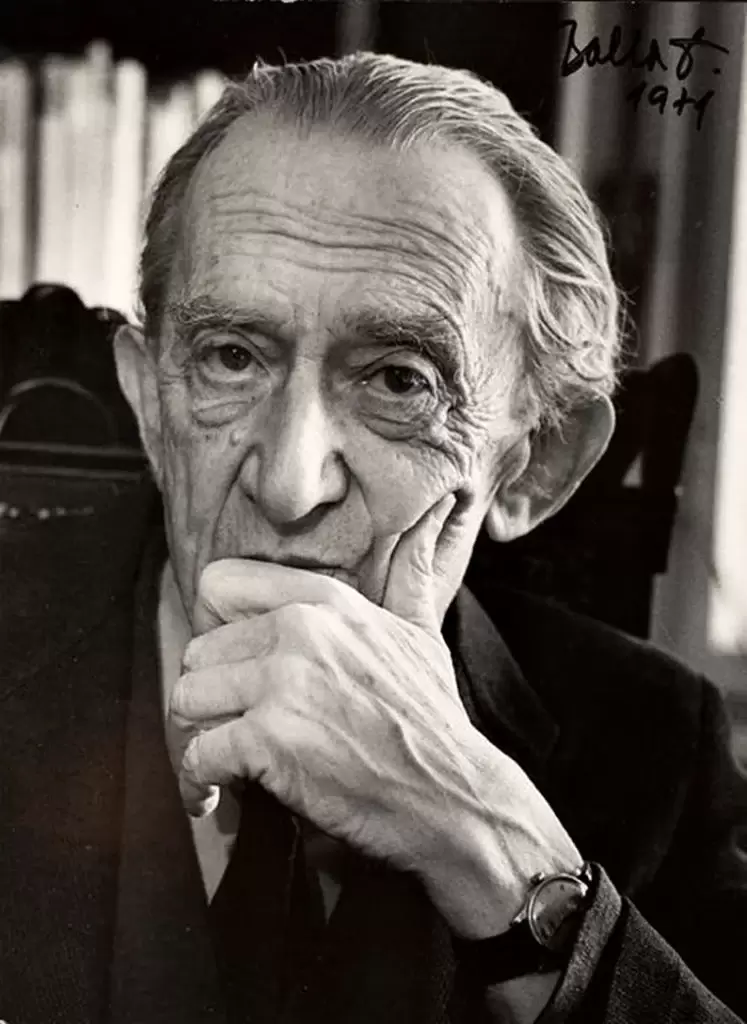
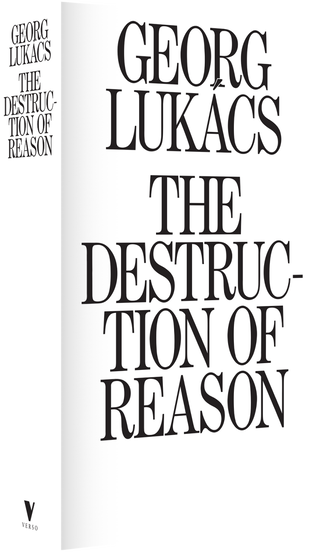
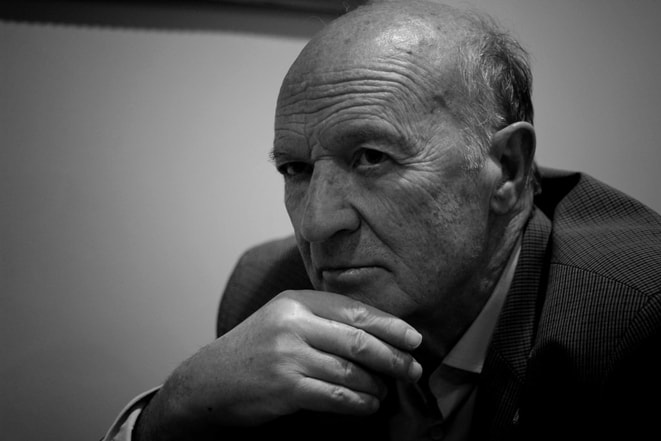
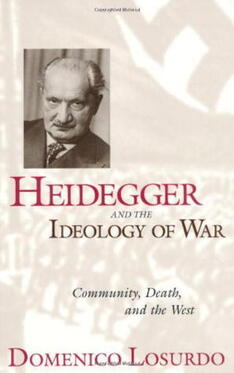
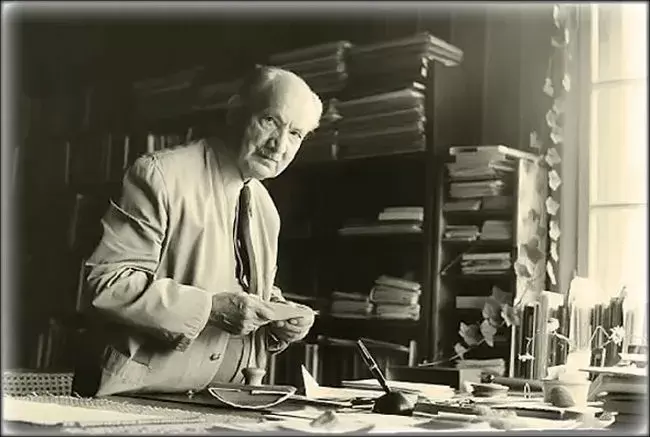
 RSS Feed
RSS Feed